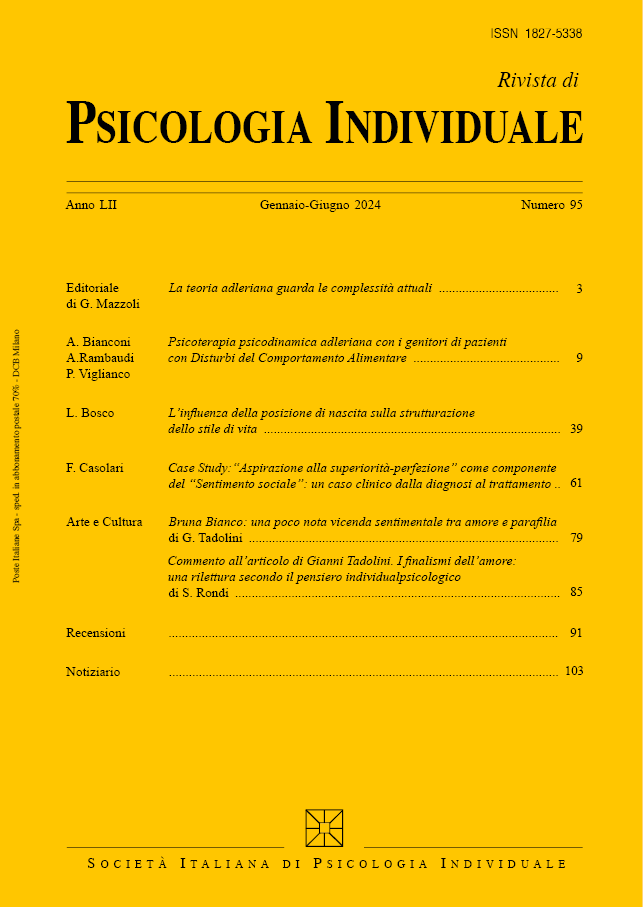FICTIONS AND THE PROCESS OF CHANGE
Keywords:
embodied simulationAbstract
Even if brain imaging techniques are providing evidence to the effectiveness of psychotherapy, the way it involves the unconscious has been scarcely described. These findings are useful to better understand the so called “factors of change”. The concepts of the Individual Psychology of fiction and compensation seem useful to clarify how the therapeutic relationship can provide a new attachment. In order to activate the factors of change a valid and non fictional recognition is needed and a synthonic answer to the wide range of communications that patients express. According to recent neurobiological acquisitions, what is known without being thought represents the bases of operative models, both of the inner and interpersonal dialogue. Implicit knowledge and fictional systems, both in the patient and in the therapist, represent a crucial area, a mix of activations and fruitions of the experiences of empathic imitation, of affiliation, and new authentic cooperation. In order to reach what our patients cannot express with words, we have to synchronize with our subjective experience: acts, evocations, non verbal messages etc are the means through which patients and therapists share what they have known, but not thought.
The shared implicit relationship turns out to be the fulcrum of change, representing in the “hic et nunc” an inter-subjective meeting of the self with others, which is made possible by previous therapist-patient relationship






